How to deal with many questions simultaneously?
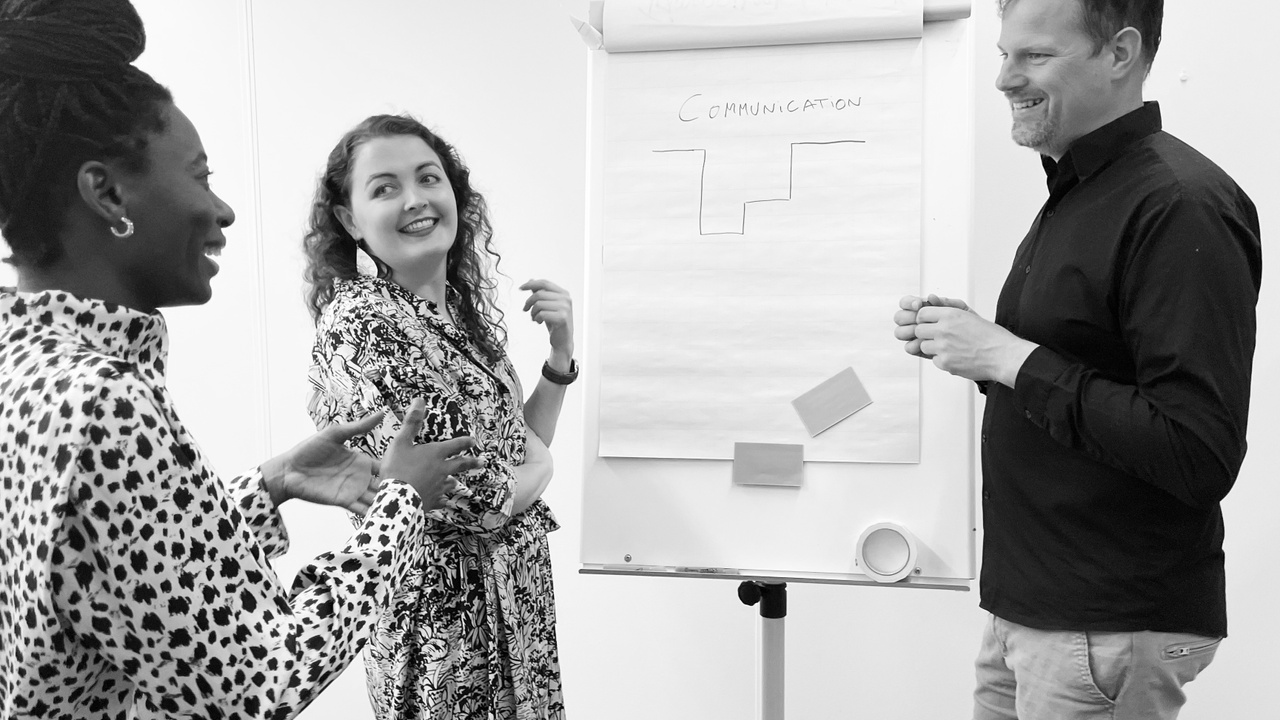
Not all questions are created equal—some questions are harder to answer than others. This could be for a few different reasons: The question itself could be difficult, or the person asking the question makes it more complex simply because of their position. Or perhaps there are a lot of questions being asked at the same time, which complicates things. Yes, the topic of complex questions is quite broad, which makes it challenging to approach it. Let's narrow it down a bit, shall we? Let's look at a tool called Bus Stop, which helps groups deal with many simultaneous questions simultaneously. Bus Stop is great for helping groups simplify things, and it can be used at almost any stage of a workshop: either emergence or convergence. It's versatile and effective, and every group leader can benefit from Bus Stop in their toolbox. So without further ado, let's get started.
Bus Stop is a tool that accomplishes two things: it lets groups talk about multiple questions (or topics) at the same time, and it helps create meaningful discussions. You might know of the tool but by a different name. In England, they call this technique Round Robin, while it is known in the United States as Rotating Flipcharts. The simple guiding principle is to have small groups discuss and write down their ideas related to a topic on a flipchart paper and then rotate the papers. Depending on the size of the group or your goals for the session, you can rotate people instead of the flipcharts.
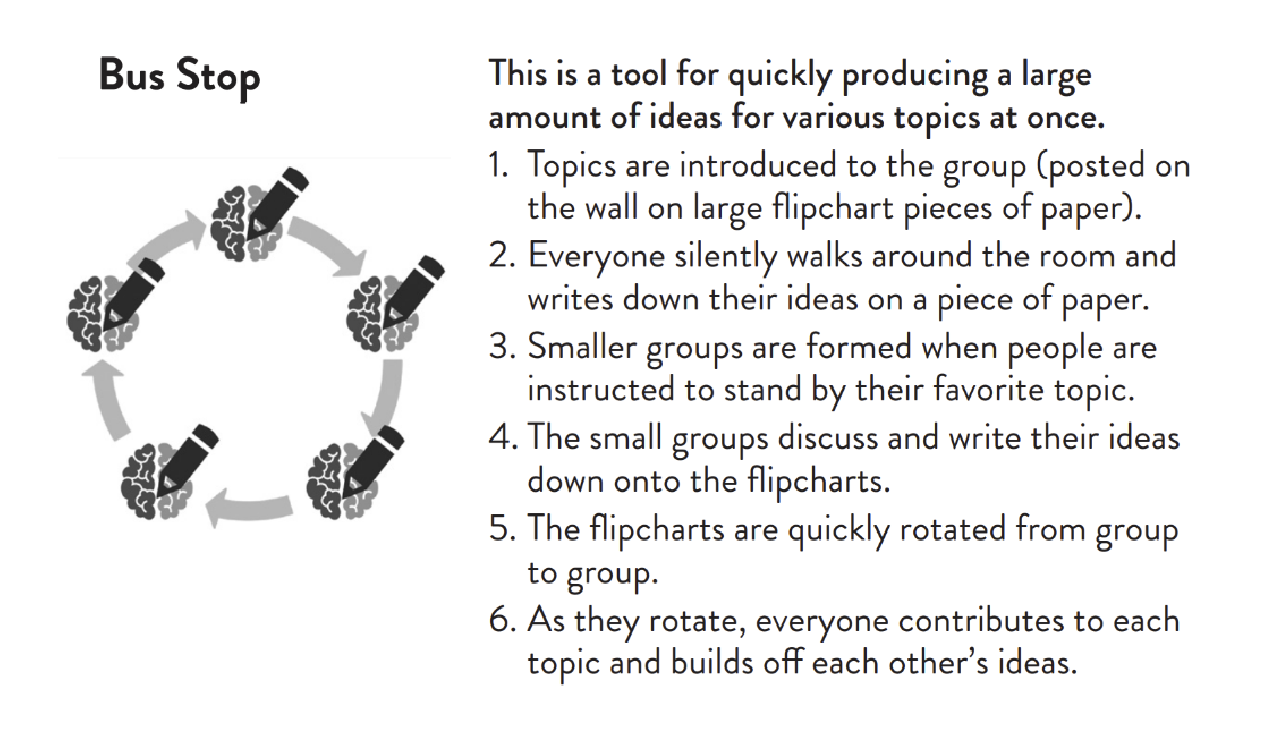
You can also decide how much time you want to spend on Bus Stop, but one thing should always remain the same; rotate the papers or flipcharts quickly from group to group. The quick pace helps people produce ideas rapidly and move from question to question instead of leisurely having a conversation about a single question. As people write down their ideas on flip charts and then rotate the flipcharts to continue building off the thoughts and ideas of other groups, this creates a shared understanding within the group. Ideas are circulating the room and being refined and expanded. Although participants are in separate groups having separate conversations, they are sharing their thoughts because the flipcharts (and their ideas) are circulating the room. Many simultaneous discussions are happening at once, and Each conversation helps answer many questions or a few complex ones. How does this work in practice? Let's take a look. I remember working with a group to help them find solutions to their most difficult company-wide challenges. The complex question of the workshop could be formulated as follows, How do we solve our top four most difficult challenges?
The challenges had already been selected and agreed upon by the group during an earlier workshop stage. Therefore, I began Bus Stop with four separate pieces of flipchart paper and wrote one of the challenges on the top of each piece of flipchart paper. The four challenges were:
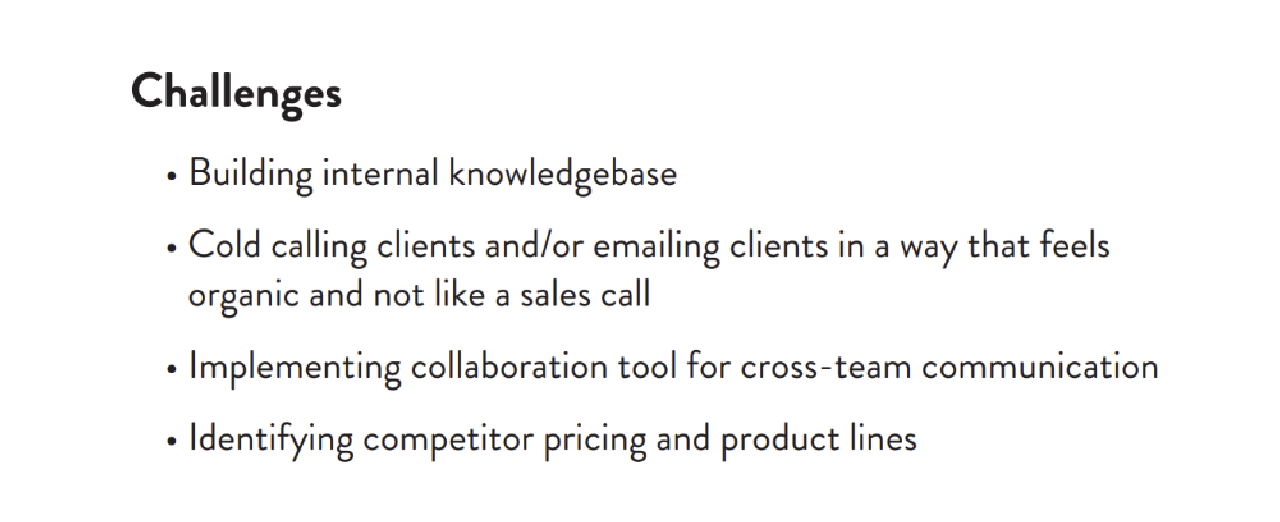
Each group started talking about potential solutions to one of these challenges and writing down their answers on the shared piece of flipchart paper. I made sure to rotate the papers after a few minutes to a new group so that the topic would change rapidly. Every few minutes I would rotate the papers again, and in this fashion I guided everyone to answer the complex question, What should we do to solve our most important challenges? This question could be answered using a different group tool, but Bus Stop lets people focus on multiple questions at once (the solutions for each of the four challenges). By the end of the Bus Stop activity, the results looked like this:
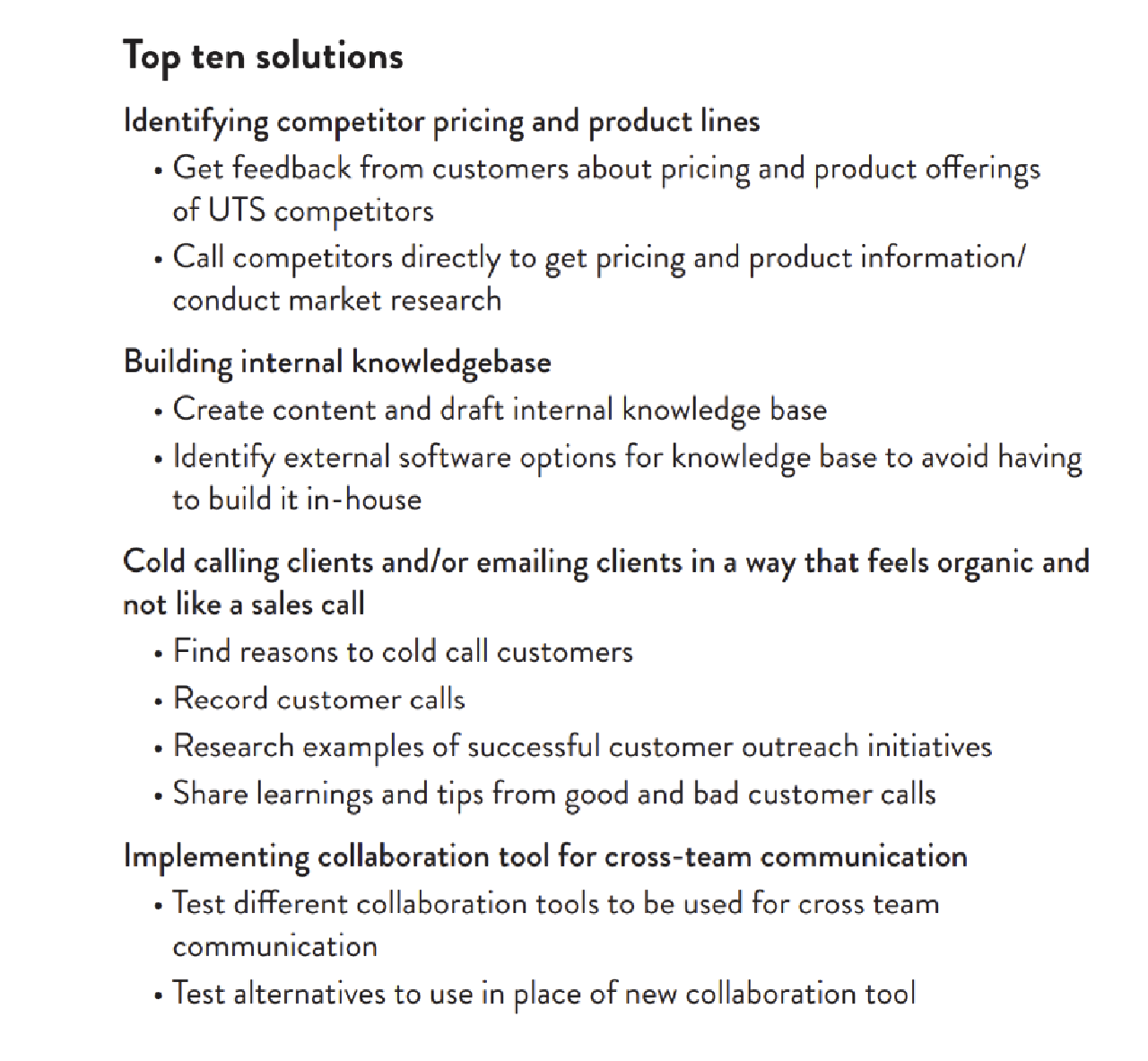
When you lead groups in a workshop, you will often be asked to help them deal with difficult problems and complex topics. After all, if the subject matter were simple and straightforward, group tools like Bus Stop would not be that important. But the reality is that tools like Bus Stop are critical to effectively lead groups to simplify complex questions or topics and get the most out of the allotted time you have scheduled. Thanks for reading this month's Spark of Inspiration, and even if you drive a fancy convertible, I still hope to see you at a bus stop soon.
If you wish to learn more about these topics,
check out our upcoming training >>
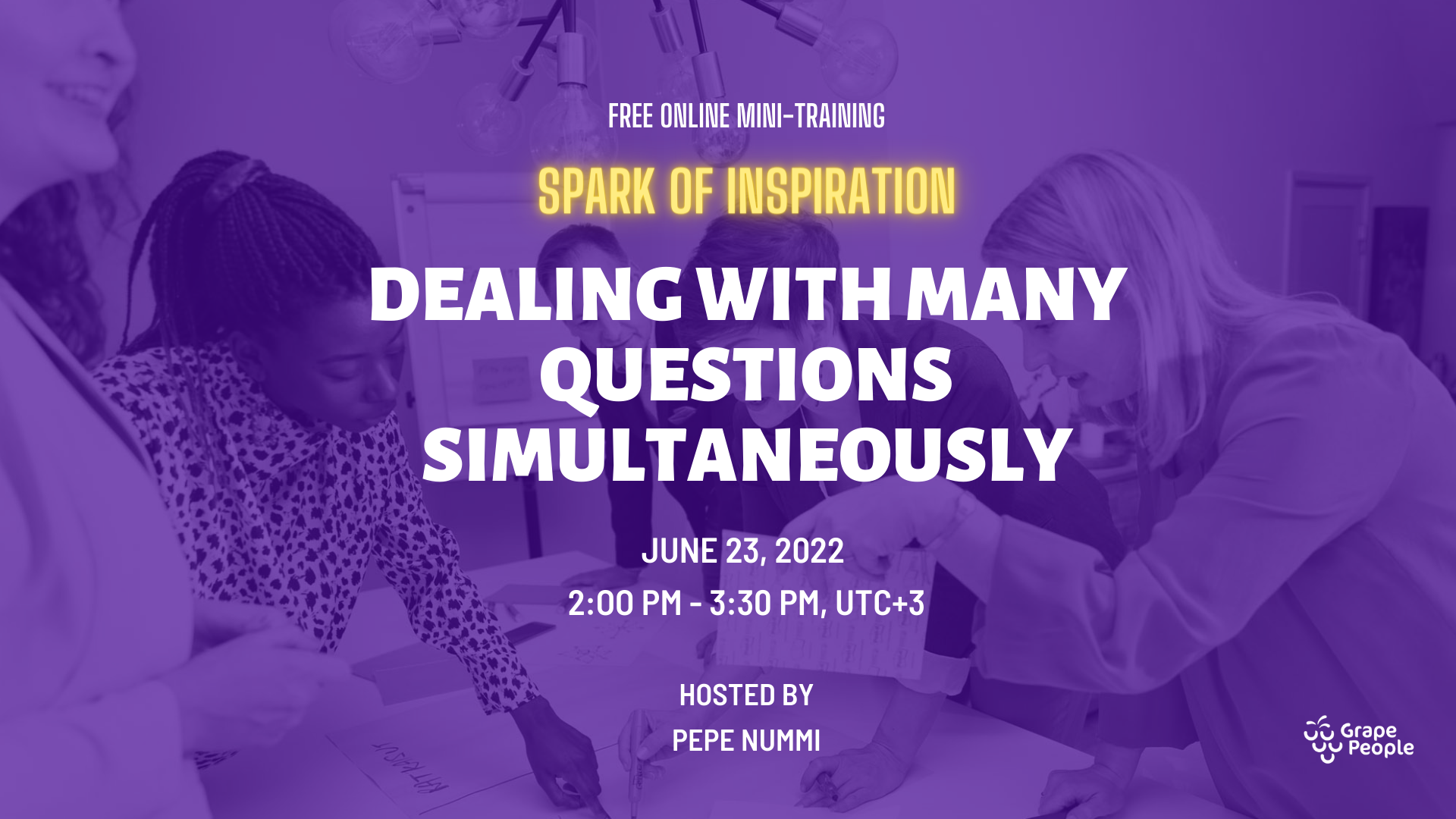
⭐ Learn more about Breakthrough Decision Making >> ⭐
About the trainer:
Pepe Nummi is a trailblazer of facilitation and an author in Finland. He is the first certified professional facilitator in the country and one of the founders of Grape People – Finland’s first company focusing on facilitation. Over the course of his long career, he has trained over 15,000 people in more than 20 different countries.
Get to know Pepe: LinkedIn | Twitter
Feel free to reach out in case you would like a tailored training
for your team or organization: sales@grapepeople.com.
We are more than happy to help you!



